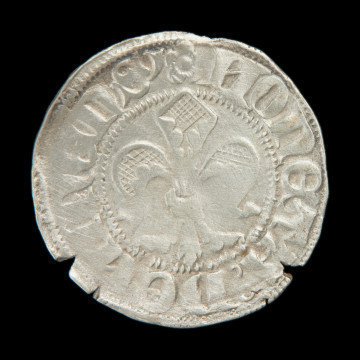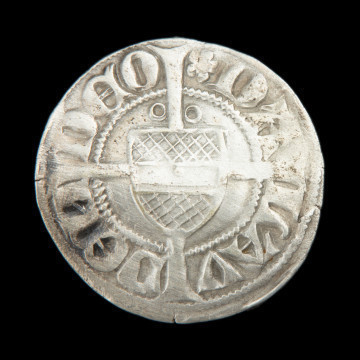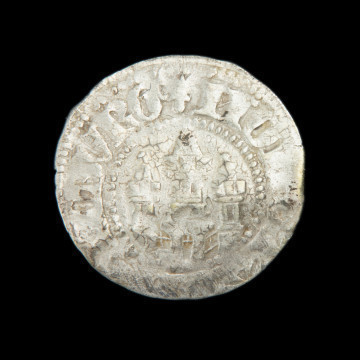
Thcik pfennig
XV wiek
National Museum in Szczecin
Part of the collection: Szczecin treasure from Podzamcze
In 1999, during archaeological research in Szczecin's Podzamcze district, a treasure of silver Pomeranian coins from the 14th - 15th centuries and ornaments of patrician costume were discovered. Among the coins, there was a thick pfennig minted in today's Anklam, which is evidenced by the inscription MONETA TANGLIM. The name was derived from the Slavic name Tąglim, from which the centre started to be called Tąglim's town. As the result of the division of Western Pomerania, Anklam became part of the Wallachian Duchy at the end of the 13th century. The town's commercial importance grew after it joined the Hanseatic League. In 1325, Duke Warcisław IV from the Griffin dynasty (1291-1326) sold the city the right to mint its coin. At that time, the city minting was already very advanced, but the dukes still decided on the image of the stamp, which had to include the griffin sign, the symbol of the state and the dynasty. Anklam cooperated closely with the other centres of the Wallachian duchy: Stralsund (Strzałów), Greifswald (Gryfia) and Demmin (Dymin), signing an agreement in 1395 to mint a thick pfennig worth 2 wittens. The copy from Anklam contains one of the typical Pomeranian coins of those times: DEUS IN NOMINE TU (God in Thy Name), an image of a griffin and an arrow, which in medieval symbolism meant power, speed and group affiliation.
Małgorzata Peszko
Dimensions
cały obiekt: diameter: 2 cm
Object type
coin
Creation time / dating
Creation / finding place
Identification number
Location / status

XV wiek
National Museum in Szczecin

1405 — 1449
National Museum in Szczecin

1370
National Museum in Szczecin
DISCOVER this TOPIC
National Museum in Szczecin
DISCOVER this PATH
Educational path